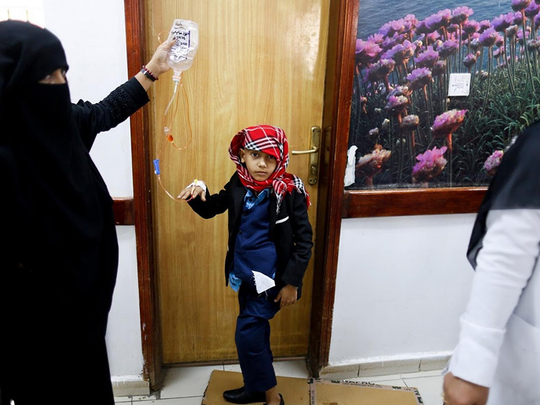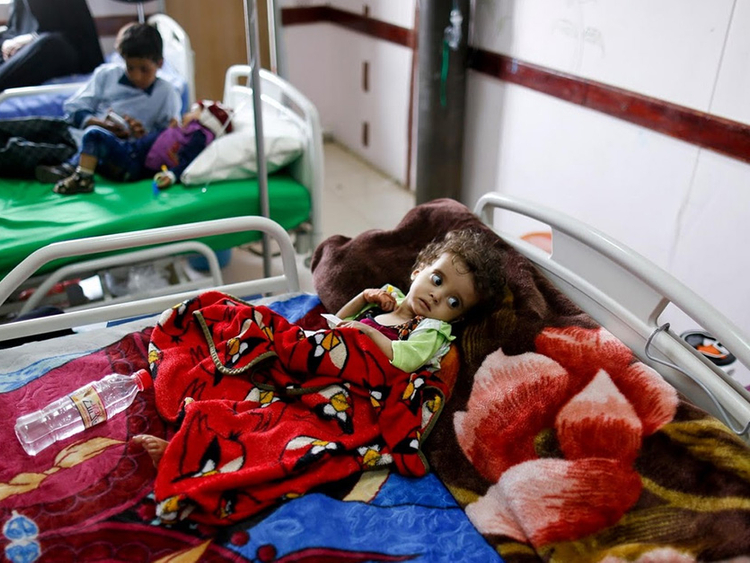
Sanaa - The United Nations is working to open a humanitarian air bridge to take Yemeni cancer patients for treatment at qualified facilities, WHO country representative for Yemen Nevio Zagaria said Sunday.
"The aim is to help patients suffering from cancer, chronic diseases and congenital anomalies receive the treatment they need," Zagaria said, adding that 12 health conditions had been targeted.
These include leukaemia, cervical and thyroid cancer, and "patients who need bone marrow and kidney transplants," said Zagaria of the World Health Organization (WHO).
The air bridge will operate for an initial trial period of six months, WHO said, without specifying where the patients would be sent for treatment.
"Eighty percent of patients for this flight are women and children," Zagaria said, adding "The air bridge is one of their last hopes."
Cancer patients: the other victims of Yemen's war
Millions of Yemenis are at risk from hunger and cholera brought on by three years of war, an emergency that has also hit cancer patients, struggling to get treatment in a country where the economy and infrastructure have collapsed
The World Health Organization (WHO) said around 35,000 people have cancer in Yemen, with about 11,000 cases diagnosed each year.
“It is very difficult to find medicines, and if you find them in the market, they’re too expensive and citizens cannot afford them” said Mohammed Emad, speaking to Reuters last month as he was accompanying a relative going for treatment in the capital Sanaa.
The National Oncology Centre in Sanaa admits around 600 new cancer patients each month. But it received only $1 million in funding last year from state entities and international aid groups, the head of the center, Ahmed Ashwal, told Reuters.
The few beds available at the center are reserved for children. Other patients receive treatment intravenously, while sitting on dilapidated recliner chairs or in the waiting area.
The WHO said that prior to the conflict, the center used to receive $15 million a year from the state and that the budget was used to purchase chemotherapy medications and anti-cancer drugs for oncology centers across the country.
“Now, the National Oncology Centre is totally relying on the fund provided by international organizations, including WHO, and some charitable organizations or businessmen as the government fund has been disrupted for around two years,” it said in a statement emailed to Reuters.
The head of the Al-Amal Centre for Cancer Treatment, Yasser Abdullah Noor, said the center is struggling to provide care to its more than 5,300 patients in Hodeidah and was in danger of shutting down without government support.
“A center that provides care to thousands of patients cannot operate on donations and grants alone.”












